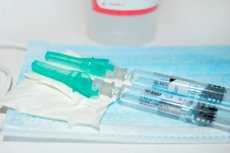Medical expert of the article
New publications
What can't be done after vaccination?
Last reviewed: 30.06.2025

All iLive content is medically reviewed or fact checked to ensure as much factual accuracy as possible.
We have strict sourcing guidelines and only link to reputable media sites, academic research institutions and, whenever possible, medically peer reviewed studies. Note that the numbers in parentheses ([1], [2], etc.) are clickable links to these studies.
If you feel that any of our content is inaccurate, out-of-date, or otherwise questionable, please select it and press Ctrl + Enter.

After vaccination, there are certain recommendations and precautions that should be followed. Here are some of them:
- Avoid alcohol: Refrain from drinking alcohol for a few days after vaccination, as alcohol can weaken the immune response.
- Avoid physical activity: In some cases (such as after a flu shot), it is recommended to avoid strenuous physical activity for a day or two after the shot to prevent soreness at the injection site.
- Do not touch the injection site: Avoid touching or vigorously massaging the injection site after vaccination to prevent irritation.
- Keep an eye on the injection site: If redness, swelling, severe pain, or other unusual symptoms occur at the injection site, tell your doctor.
- Do not take aspirin: In rare cases, aspirin can make some side effects of vaccinations worse. Instead, if you need to relieve pain or fever, use acetaminophen (paracetamol) if approved by your doctor.
- Be hygienic: Wash your hands with soap and water before eating and after visiting public places to prevent infection.
- Follow your doctor's advice: If you experience any unusual or uncomfortable symptoms after vaccination, be sure to consult your doctor. In some cases, it may require further evaluation and treatment.
- Follow the immunization schedule: If you are scheduled for more than one immunization, stick to the schedule and get them on time as recommended by your doctor.
Note that recommendations may vary slightly depending on the specific vaccination and your health. Therefore, always discuss with your doctor the instructions and recommendations related to the specific immunization you are receiving.
After immunization, the following activities and recommendations can be followed:
- Follow your doctor's instructions: It is important to follow your doctor's instructions and medical staff who provide information about the immunization, its side effects, and precautions.
- Rest: In some cases, you may feel tired or a little restless after vaccination. Allow yourself some rest if you feel very tired.
- Drinkwater: Drinking enough water can help reduce the risk of dehydration and may help you feel better after vaccination.
- Keep an eye on the injection site: Usually after vaccination, there may be slight redness, swelling or slight pain at the injection site. These symptoms usually go away on their own after a few days.
- Take medication as needed: If your doctor has authorized it, you can take safe analgesics (such as paracetamol) to relieve pain or fever.
- Takecare of yourself: Maintain personal hygiene and avoid contact with people with infectious diseases to reduce the risk of infection.
- Monitor yourself: If you experience unusual or serious symptoms, seek medical attention.
- Follow the recommended vaccination schedule: If you are scheduled for more than one vaccination or booster, follow the vaccination schedule to ensure maximum protection.
- Inform your doctor: If you have any chronic illnesses or allergies, inform your doctor before receiving your immunization.
It is important to remember that side effects after vaccination are usually mild and temporary. But if you experience serious or long-lasting symptoms, do not hesitate to consult a medical professional to evaluate your condition.

